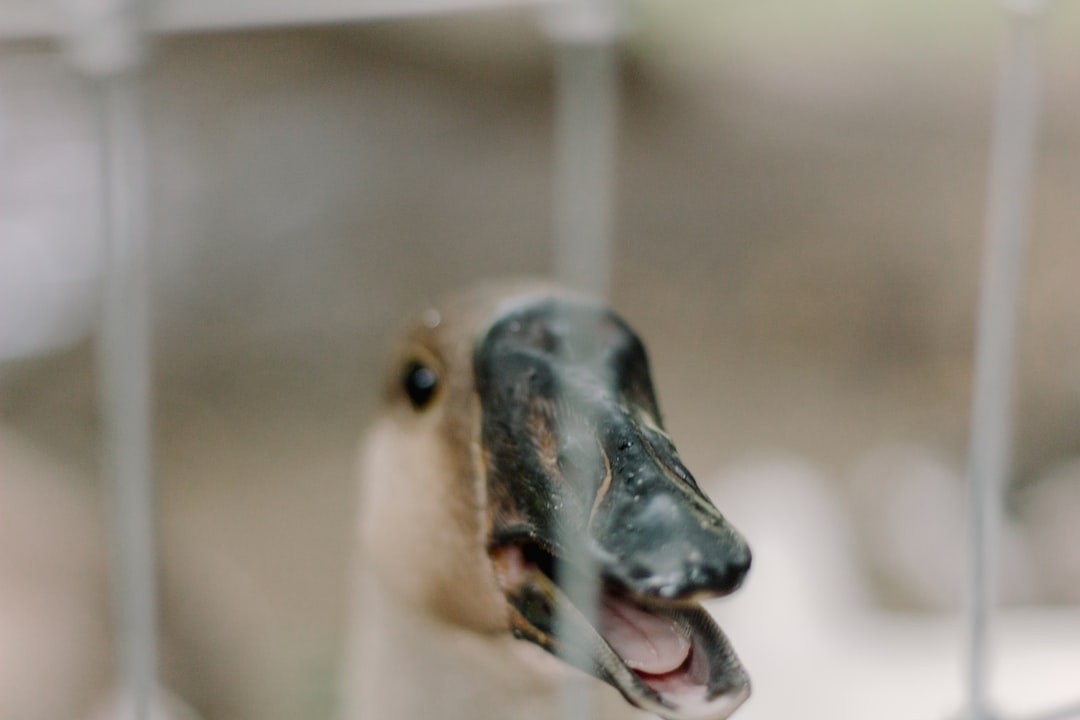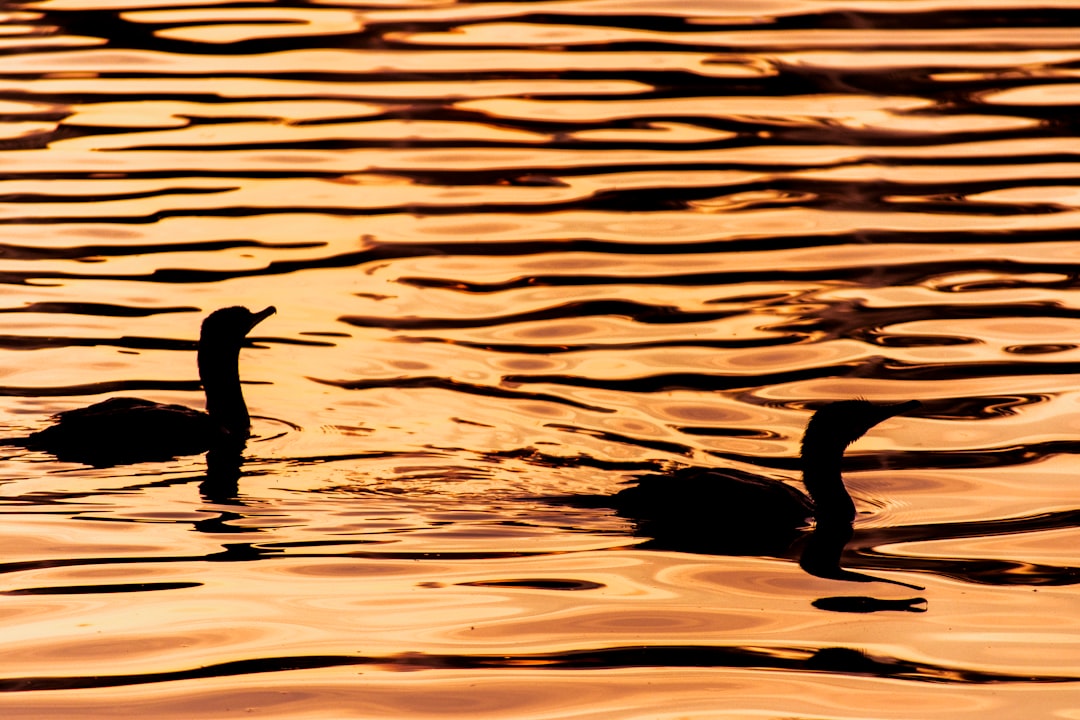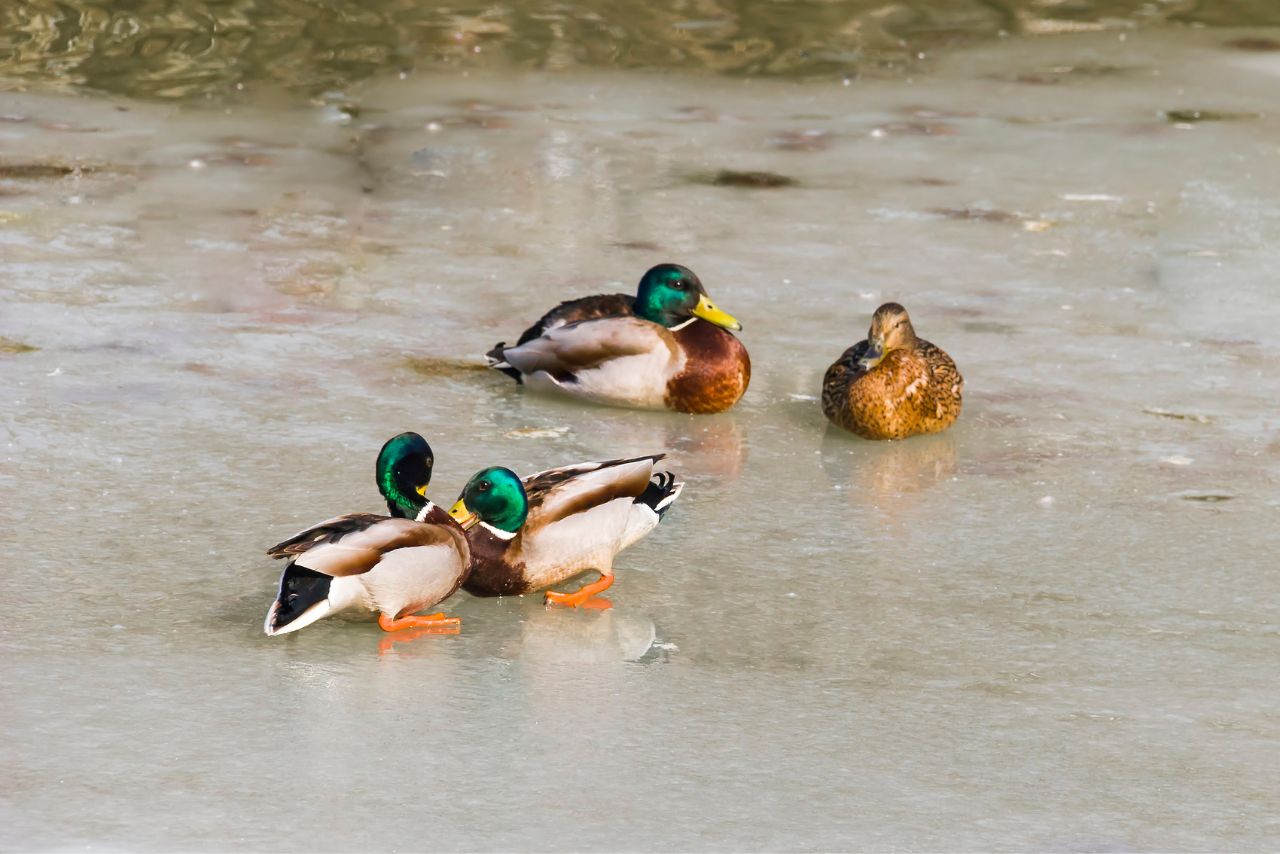Ducks are fascinating birds that can be found in various parts of the world. Many people wonder if ducks are capable of fighting to the death. This question has been the subject of many debates and discussions among wildlife.
So, Ducks do not typically fight to the death. They can be aggressive and will sometimes fight each other over territory, mates, or food. These fights are usually brief and rarely result in serious injuries.
In some cases, ducks may fight to the death. This is most likely to happen between two males fighting over a female. These fights can be long and bloody, and the loser may be killed.
Most of the time, duck fights are merely posturing, flapping of wings, and quacking but usually end without any serious harm done to either party.
In this article, we will explore the topic Do Ducks Fight To The Death? and shed some light on this intriguing question.
Do Ducks Fight To The Death?
Contrary to popular belief, ducks rarely fight to the death. Male ducks are known for their aggressive behavior during mating season, they seldom engage in fights that result in fatal injuries.
It is important to note that these types of fights are rare. Most ducks are peaceful creatures and will only fight if they feel threatened or provoked.
Here are some safety guidelines to keep in mind when interacting with ducks:
- Do not approach a duck that is acting aggressively. If a duck is hissing, flapping its wings, or making other aggressive noises, it is best to stay away.
- Do not try to feed a duck by hand. This can make the duck feel threatened and more likely to bite.
- Be careful when handling ducks, especially young ducks. Young ducks are more likely to bite than adult ducks.
14 Surprising Points Of Aggressive Duck Behavior
It is worth noting that while ducks may not fight to the death often, aggressive behavior towards other animals and even humans can occur.
It is essential to give these birds their space and avoid approaching them during mating season or when they feel threatened.
1. Charging
If you encounter a duck that appears to be charging you, it is best to remain calm and avoid making any sudden movements.
Ducks may charge as a warning sign or to protect their territory, but they will usually back down if they realize there is no real threat.
It’s also important to remember that ducks are protected by law in many countries, so interfering with them or their habitats can result in legal consequences.
2. Pecking
Ducks also have a tendency to peck, which can be painful and even dangerous if they target sensitive areas. It is crucial to keep an eye on young children around ducks and avoid feeding them by hand.
Feeding ducks can encourage them to approach humans closely and become aggressive. Instead, it is better to toss food into the water from a safe distance.
3. Wing Flapping
Another common behavior in ducks is wing flapping. This behavior is often seen during fights and displays of dominance.
Wing flapping is a way for ducks to assert their dominance over other birds, and it can be quite an impressive sight to witness.
4. Hissing
Hissing is another behavior that ducks exhibit when they feel threatened or scared. Hissing is often accompanied by aggressive posturing and can be a warning sign for humans to stay away.
5. Nest Guarding
Ducks are also known to fiercely guard their nests and offspring. Females will often lay their eggs in a hidden spot and then incubate them until they hatch.
During this time, they will defend their nests against any potential threats, including other ducks. Male ducks may also help with nest guarding by standing watch nearby.
6. Threat Display
Ducks may display aggressive behavior towards each other during certain times of the year, they rarely fight to the death. Most of the time, duck fights are displays of dominance or territorial disputes that end without any serious harm done.
7. Fatal Duck Fights
Despite rare instances of aggressive behavior towards each other, fatal duck fights are extremely rare. Ducks are not known to fight to the death unless they feel threatened or cornered.
In most cases, duck fights are resolved quickly and without any serious injuries.
8. Ducks Peck At Each Other

Ducks are fascinating creatures with complex social dynamics and behaviors. Ducks may exhibit aggressive behavior towards each other during certain times of the year, fatal duck fights are rare.
Most of the time, duck fights are displays of dominance or territorial disputes that end without serious harm done.
9. Establishing Dominance
Establishing dominance is a natural behavior in ducks, and it is essential to understand their social hierarchy.
Dominant ducks are usually the strongest and most aggressive, while subordinate ducks are more passive.
10. Mating Rituals
Ducks also exhibit unique mating rituals, which involve elaborate displays and vocalizations.
During the breeding season, male ducks will compete for the attention of female ducks by displaying their colorful feathers and performing intricate courtship dances.
Once a male duck has successfully attracted a mate, they will pair up and remain loyal to each other during the breeding season.
11. Territorial Disputes
Territorial disputes between ducks can also lead to aggressive behavior. Male ducks, in particular, may defend their territory against other males during breeding season.
These territorial disputes usually involve displays of aggression and vocalizations rather than physical fighting.
12. Social Interaction
Social interaction is an important part of a duck’s life, and they have their own unique ways of communicating with each other.
They use a variety of vocalizations, such as quacks, honks, and whistles to communicate different messages.
For example, ducks may use a high-pitched whistle to get the attention of other ducks or to signal danger.
13. Food Competition
Food competition can also lead to aggressive behavior between ducks. In the wild, ducks compete for limited food resources, and this can sometimes result in fights over food.
14. Ducks Might Kill Ducklings
However, it is important to note that ducks can exhibit aggressive behavior towards their own offspring. In some cases, male ducks may attack and kill ducklings that they do not believe are their own.
This is known as filial cannibalism and is a rare but natural behavior in some duck species.
Why Do Ducks Bite Each Other’s Necks?

Ducks may bite each other’s necks as a display of dominance or during mating rituals. This behavior is common in male ducks during the breeding season, as they compete for the attention of female ducks.
Biting can also be a way for ducks to establish their dominance over each other and determine their place in the social hierarchy.
Strategies To Minimize Aggression
Strategies To Minimize Aggression:
- Practice self-awareness and emotional regulation, recognize your triggers and work on controlling your emotions.
- Use effective communication, express yourself clearly and respectfully, and listen actively to others.
- Avoid provoking situations, stay away from people or situations that make you feel angry or frustrated.
- Take breaks, When you feel overwhelmed or stressed, take a break to calm down and regain your composure.
- Seek support, talk to a trusted friend, family member, or therapist for guidance and support.
Do Ducks Eat Each Other After Kill?
No, ducks do not eat each other after killing. In fact, cannibalism is not a common behavior among ducks and is usually only exhibited in rare cases of filial cannibalism.
Why Do Male Ducks Attack Female Duck?
Male ducks do not usually attack female ducks. In fact, during the breeding season, male ducks will often display courtship behaviors towards females in an effort to attract their attention and mate with them.
These courtship behaviors can include vocalizations, preening, and wing flapping.
Do Male Ducks Hurt Females?
Sometimes male ducks may hurt female ducks during breeding season if their behavior becomes too aggressive. Male ducks can become possessive and territorial towards females, leading to forced mating attempts or physical harm.
It is important for humans who keep domesticated ducks to monitor their behavior during breeding season and intervene if necessary to prevent any harm to the birds.
Why Do Ducks Chase Each Other?

Ducks may chase each other for a variety of reasons. Sometimes it can be a playful activity, particularly among young ducks. It can also be a way for ducks to establish dominance or hierarchy within their group.
During the breeding season, male ducks may chase female ducks as part of their courtship behavior. This can include chasing them on land or in the water, and sometimes even biting their necks to assert their dominance.
Do Ducks Hurt Other Ducks?
While ducks may exhibit aggressive behavior towards each other, fatal fights are extremely rare. Most of the time, duck fights are displays of dominance or territorial disputes that end without any serious harm done.
How To Handle Fighting?
If ducks are fighting, it is important to intervene and separate them to prevent any serious injuries. This can be done by gently picking up one of the ducks and moving them to a separate area away from the others.
How Do Ducks Defend Themselves?
Ducks have several ways of defending themselves. Their first line of defense is their ability to fly, swim and dive underwater. This allows them to escape from potential predators such as foxes or eagles.
They can also use their wings to create a loud flapping noise or splash water towards the predator to make it back off.
Conclusion! Do Ducks Fight To The Death?
Duck aggression may seem alarming, it is important to understand the reasons behind their behavior and how to handle it.
Fatal fights are rare among ducks, and most displays of aggression are simply a way for them to establish dominance or resolve territorial disputes.
It is important for humans who keep domesticated ducks to provide them with adequate resources and space to prevent overcrowding and stress which can lead to aggressive behavior.
By observing these unique creatures with respect and understanding, we can appreciate the beauty of their social hierarchies and behaviors in the ecosystem.
FAQs
Do Ducks Fight to The Death?
Fatal fights between ducks are very rare. Most of the time, duck fights are displays of dominance or territorial disputes that end without any serious harm done.
Can Male Ducks Hurt Female Ducks During Breeding Season?
Yes, sometimes male ducks may hurt female ducks during breeding season if their behavior becomes too aggressive. It is important for humans who keep domesticated ducks to monitor their behavior during breeding season and intervene if necessary to prevent any harm to the birds.
Why Do Ducks Chase Each Other?
Ducks may chase each other for a variety of reasons such as playful activity, establishing dominance or hierarchy within their group, or as part of courtship behavior during breeding season.
How Can We Handle Fighting Among Ducks?
If ducks are fighting, it is important to intervene and separate them to prevent any serious injuries. This can be done by gently picking up one of the ducks and moving them to a separate area away from the others.
How Do Ducks Defend Themselves Against Predators?
Ducks have several ways of defending themselves such as flying, swimming and diving underwater, creating loud flapping noises with their wings, splashing water towards predators, and using their “drake feather” as a weapon during fights.




